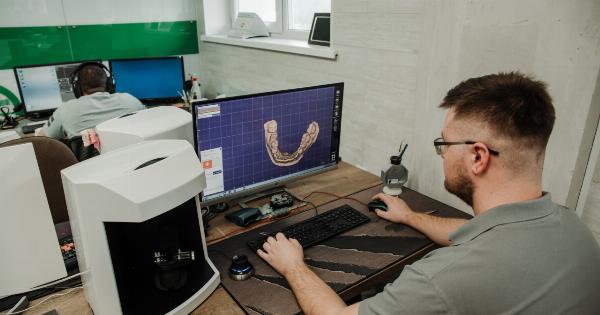Biotechnology is a field that has evolved significantly in recent years. It uses biology to develop products and technologies that improve our lives.
It has been used to develop new drugs and therapies, genetically engineered organisms, and sustainable sources of energy. In this article, we will discuss how biotechnology has evolved over the years, from the DNA propeller to Georgia.
What is Biotechnology?
Biotechnology is a field of science that uses living organisms to develop products and technologies that improve our lives.
This includes using DNA technology to change plants or animals, creating genetically modified organisms (GMOs), synthesizing proteins, and developing new drugs and therapies. Biotechnology has the potential to make a significant impact on our lives and the world we live in.
The Evolution of Biotechnology
Biotechnology has come a long way since the first DNA propeller was created in the 1980s.
Today, biotechnology is being used to develop drugs, vaccines, and other therapies that are saving lives and improving the quality of life for millions of people around the world. Below are some of the key developments in biotechnology:.
Genetic Engineering
Genetic engineering is the process of manipulating the DNA of an organism to change its characteristics. It is used to create genetically modified organisms (GMOs) that have desired traits, such as resistance to disease or increased crop yields.
Genetic engineering has revolutionized agriculture, allowing farmers to produce more food with fewer resources. It has also been used to create new drugs and therapies, such as genetically engineered insulin for diabetes patients.
Stem Cell Research
Stem cell research is another area of biotechnology that has the potential to revolutionize medicine. Stem cells are cells that have the ability to differentiate into any type of cell in the body.
This means that they could be used to regrow damaged or diseased organs and tissues. Stem cell research has already been used to treat certain types of cancer, and has the potential to cure many other diseases in the future.
Cloning
Cloning is the process of creating a genetically identical copy of an organism. It has been used to create cloned animals, such as Dolly the sheep, and could potentially be used to create human clones.
While there are ethical concerns surrounding human cloning, cloning could be used to create organs for transplant or to study genetic diseases.
CRISPR
CRISPR (Clustered Regularly Interspaced Short Palindromic Repeats) is a revolutionary gene-editing technology that has the potential to cure genetic diseases.
It is a tool that allows scientists to precisely edit the DNA of an organism, replacing or removing the sections causing disease. This means that diseases that were previously untreatable could potentially be cured using CRISPR.
However, there are also ethical concerns around the use of CRISPR, as it could be used to create “designer babies” or genetically modified organisms that could have unintended consequences.
Biofuels
Biotechnology has also been used to develop sustainable sources of energy, such as biofuels. Biofuels are made from renewable resources like plants and algae, and can be used to power vehicles and homes.
The development of biofuels could significantly reduce our dependence on fossil fuels and help to mitigate the effects of climate change.
Medical Advances
Biotechnology has revolutionized medicine, creating new drugs and therapies that have saved countless lives. It has been used to develop drugs for diseases like cancer, HIV, and hepatitis C.
Biotechnology has also been used to develop new vaccines and therapies, such as gene therapy and immunotherapy. These advancements have significantly improved the lives of millions of people around the world.
Georgia’s Biotechnology Industry
Georgia is home to a rapidly growing biotechnology industry. The state has a number of biotech companies that are developing new drugs, therapies, and technologies.
Georgia’s universities and research institutions are also conducting cutting-edge research in fields like stem cell research, genetics, and infectious disease. In addition, Georgia is home to one of the largest concentrations of biomanufacturing facilities in the world, producing drugs, vaccines, and other products that are distributed globally.
Georgia’s biotechnology industry is a major driver of economic growth and innovation in the state.
Conclusion
Biotechnology has come a long way since the first DNA propeller was created in the 1980s. It has revolutionized medicine, agriculture, and energy, creating new products and technologies that have improved our lives and the world we live in.
As biotechnology continues to evolve, it has the potential to cure diseases, feed the world, and address some of the biggest challenges facing our planet.






























